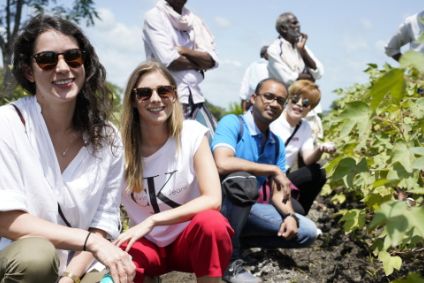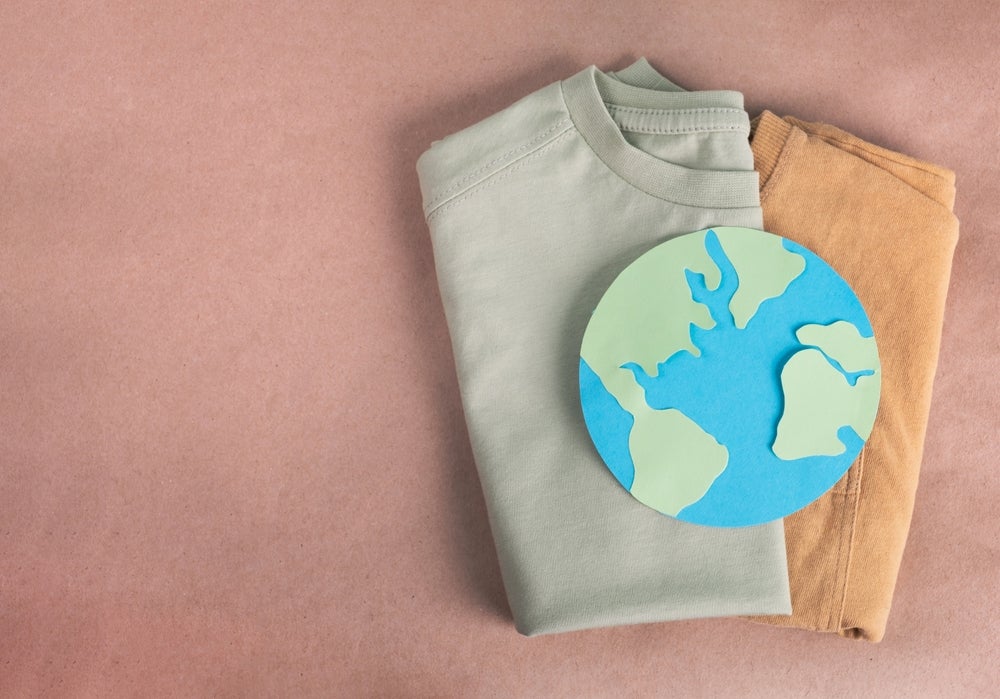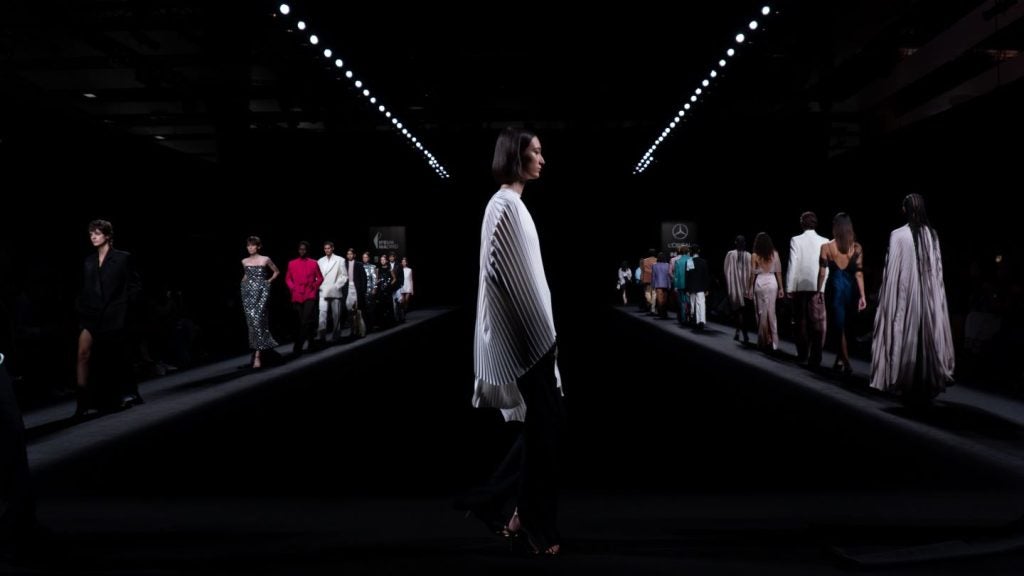
Calvin Klein and Tommy Hilfiger owner, PVH Corp, has published its first corporate responsibility (CR) report since the launch of its new sustainability strategy last year, with highlights including sharing living wage data for the first time and sourcing approximately 50% of its cotton footprint sustainably in 2019.
The document is the group’s twelfth annual CR report and provides information and performance data on its operations during the 2019 fiscal year. It builds on the Forward Fashion strategy it launched in May of last year.
Forward Fashion outlines three focus areas that aim to reduce the company’s negative impacts to zero, increase positive impacts to 100%, and improve over one million lives throughout its value chain. These areas include combatting climate change, addressing waste and hazardous chemicals, ensuring worker safety, and providing development programmes to women.
The report comes amid both the Covid-19 pandemic and the global movement against systemic racism and social inequality. While PVH says it has had to adapt much of its CR work to the current environment, the company remains committed to delivering on its long-term strategy.
“While the apparel industry will be uniquely transformed post-pandemic, we have a responsibility to help shape this ‘new normal’ for the benefit of all stakeholders. We are steadfast in our commitments to prioritise climate action, to build tighter, more resilient supply chains, to fight for social justice, and to deliver more sustainable products to our consumers,” says PVH Corp chairman and CEO Manny Chirico.
See Also:
The report increases the group’s data disclosure and expands transparency around workforce inclusion and diversity (I&D) information, which PVH notes as “an important first step” in meaningful progress to ensure all people and communities are represented.
How well do you really know your competitors?
Access the most comprehensive Company Profiles on the market, powered by GlobalData. Save hours of research. Gain competitive edge.

Thank you!
Your download email will arrive shortly
Not ready to buy yet? Download a free sample
We are confident about the unique quality of our Company Profiles. However, we want you to make the most beneficial decision for your business, so we offer a free sample that you can download by submitting the below form
By GlobalData“Within this report, we have been transparent about representation and diversity across our company. We have a lot more to do — and we are fully committed to doing the work. Over the next few months, we will be publishing a set of targets focused on racial equality, representation, and advancement, and we commit to disclosing the actions being taken across our organisation to meet these targets,” Chirico adds.
Highlights
In addition to expanded I&D data, the report includes a progress overview against the 15 priorities of Forward Fashion. Among the highlights are PVH having sourced about 50% of its cotton footprint sustainably last year. The group is working towards the target of sustainably sourcing 100% of its cotton by 2030.
Cotton represents nearly 70% of PVH’s raw material use, with the group estimating that in 2019, it sourced an estimated 49% of its cotton as Better Cotton. It is also aiming to sustainably source 100% of its viscose by 2025 and polyester by 2030.
Meanwhile, as part of its priority to “innovate for circularity”, PVH lauded its first collection of 100% recycled jeans – made from leftover cotton scraps found on cutting tables and factory floors and thread from recycled plastic bottles – and a US-wide internal clothing takeback campaign to test and learn how it can repurpose post-consumer used materials.
It also rolled out global Circularity 101 trainings to educate associates about key circularity concepts, circular design principles and business models, and participated in two pilots focused on traceability in the fashion industry, including the Organic Cotton Traceability Pilot, the first digitised project of its kind to track the organic cotton journey from farm to retail garment.
In addition, PVH is working to advance living wages with the goal of 100% of its key suppliers in two key production countries by 2025 and four by 2030 proactively supporting industry-wide collective bargaining to achieve living wages.
Last year, it invited all of its tier 1 and tier 2 vendors to complete a better buying survey and anonymously provide feedback about its business practices to gain insights into how it can be a more responsible partner. Overall, PVH says it received positive feedback on how it communicates deadlines for order activities, and noted room for improvement in providing more frequent order forecasts.
Other notable achievements during the year include:
Reduce negative impacts to zero
PVH’s ambition is for its products and business operations to generate zero waste, zero carbon emissions and zero hazardous chemicals, and for its products to be truly circular.
- Received approval of its absolute greenhouse gas emission (GHG) emission reduction targets from the Science Based Target initiative, furthering its commitment to a zero-carbon economy. PVH’s targets are in line with the most ambitious level of decarbonisation set by the Paris Agreement at 1.5 degrees Celsius.
- Ran programming through the Apparel Impact Institute to reduce the environmental footprint of its suppliers that use the most energy, implemented its forest protection policy and commenced its partnership with Canopy, a leading NGO in protecting the world’s forests.
- Conducted waste audits to inform its first global waste baselining exercise and guide its approach towards achieving zero waste for PVH offices, distribution centres and stores by 2030.
Increase positive impacts to 100%
PVH’s ambition is for 100% of its products and packaging to be ethically and sustainably sourced, and for 100% of its suppliers to respect human rights and be good employers.
- Shared living wage data for the first time. The data directly compares workers’ average hourly wages in PVH supplier factories to both legal minimum hourly wages and average hourly wages in the apparel sector, across sourcing countries that make up 75% of PVH’s global Free on Board (FOB) value in 2019.
- Sourced approximately 50% of its cotton footprint sustainably, including Better Cotton, and organic and recycled cotton. This is halfway towards its target to sustainably source 100% of its cotton by 2025.
- Approximately 10% of polyester was sustainably sourced.
- 4% of viscose was sustainably sourced.
- Committing to eliminating ancient and endangered forests fibre from its viscose fabrics by the end of 2020.
Improve 1m+ lives across the value chain
PVH’s ambition is for its business to improve the over 1m lives across its value chain, focusing on education and opportunities for women and children, ensuring access to clean water, and continuing to champion inclusion and diversity.
- Expanded I&D data disclosing gender and racial/ethnicity representation breakdowns across both PVH’s corporate offices, and retail and warehouse facilities.
- Reached its goal and CR target of achieving gender parity in leadership positions (defined as VP+ level); going forward, PVH will focus on achieving gender parity at the most senior leadership levels (SVP+).
- Announced US$3m, three-year grant extension between the PVH Foundation with Save the Children. Total giving by the PVH Foundation, its philanthropic fund specifically dedicated to non-profit donations and volunteer programMEs, was more than $15m.
“I’m proud of the progress we have made in the last year as we work to achieve our Forward Fashion goals, and we recognise it also highlights just how much more we need to do,” Chirico says. “Next year, this report will look different again, as we keep making positive impacts and holding ourselves accountable to the highest standards. We will do more, do better, and share our progress along the way.”
Click here to access the report in full.






